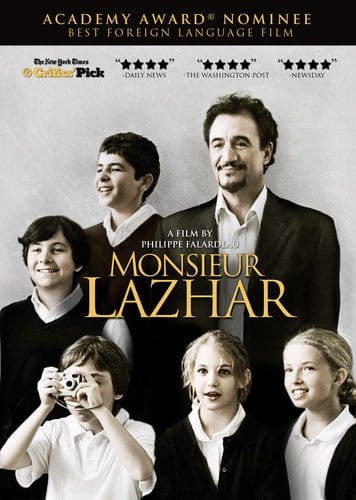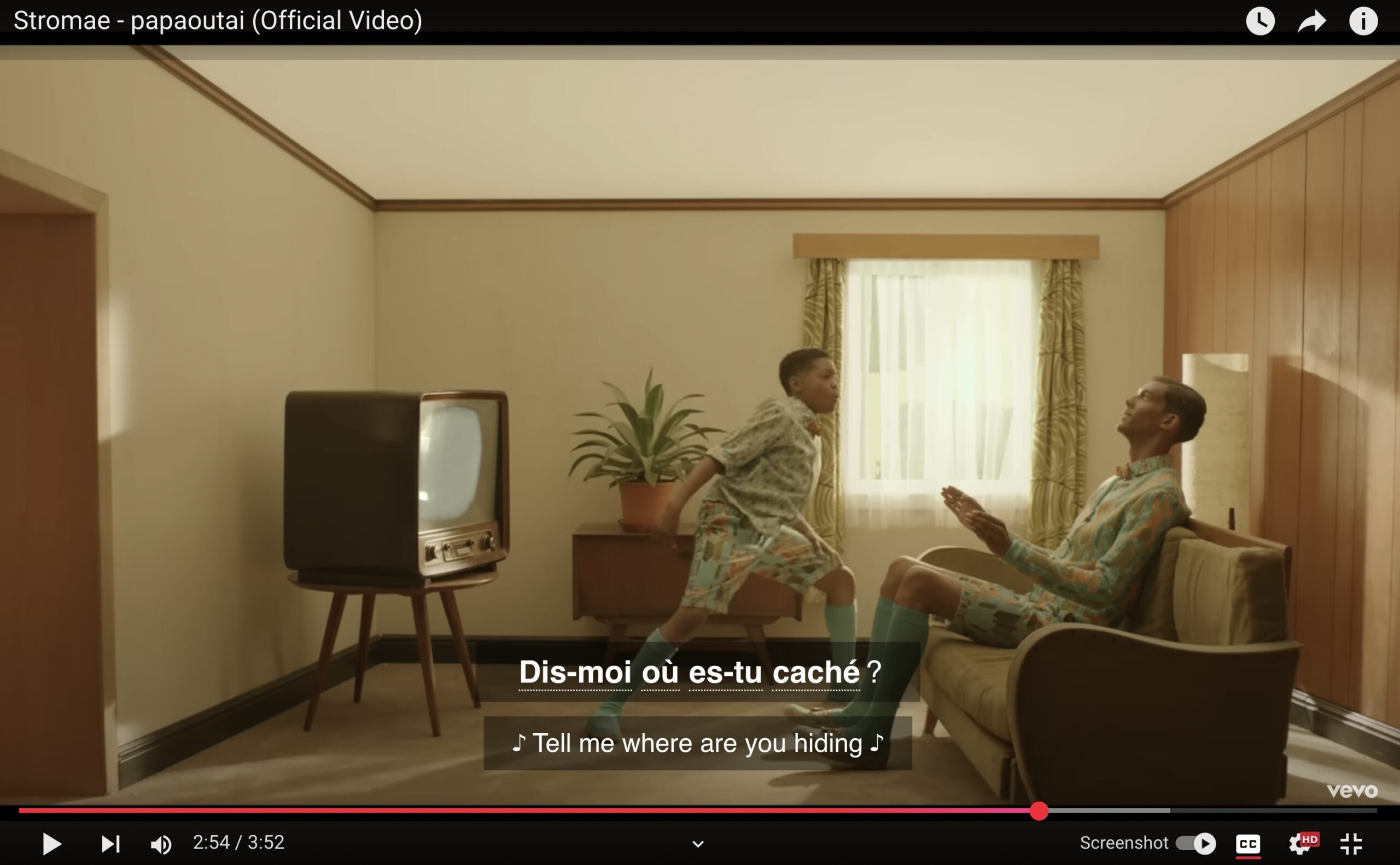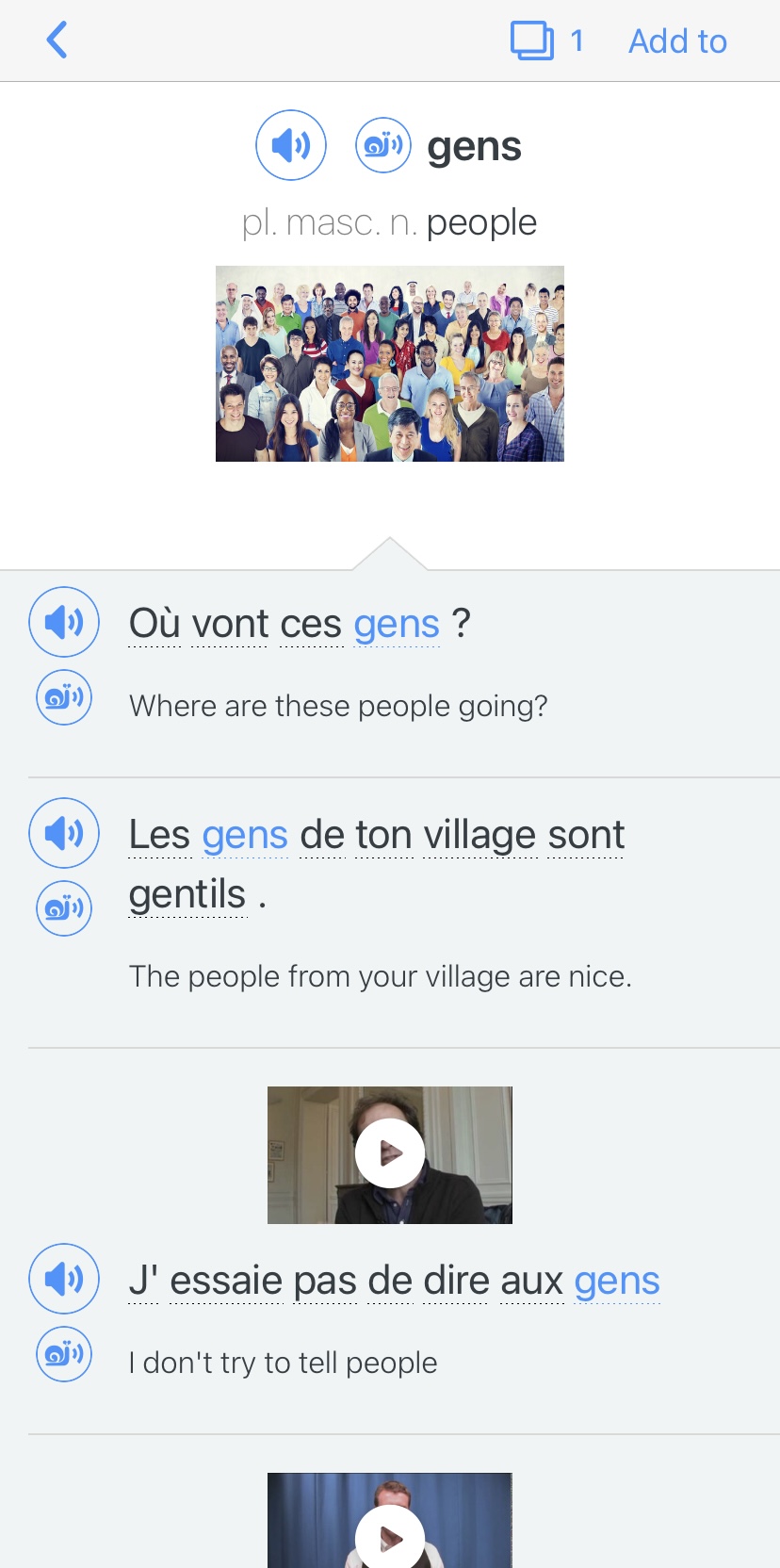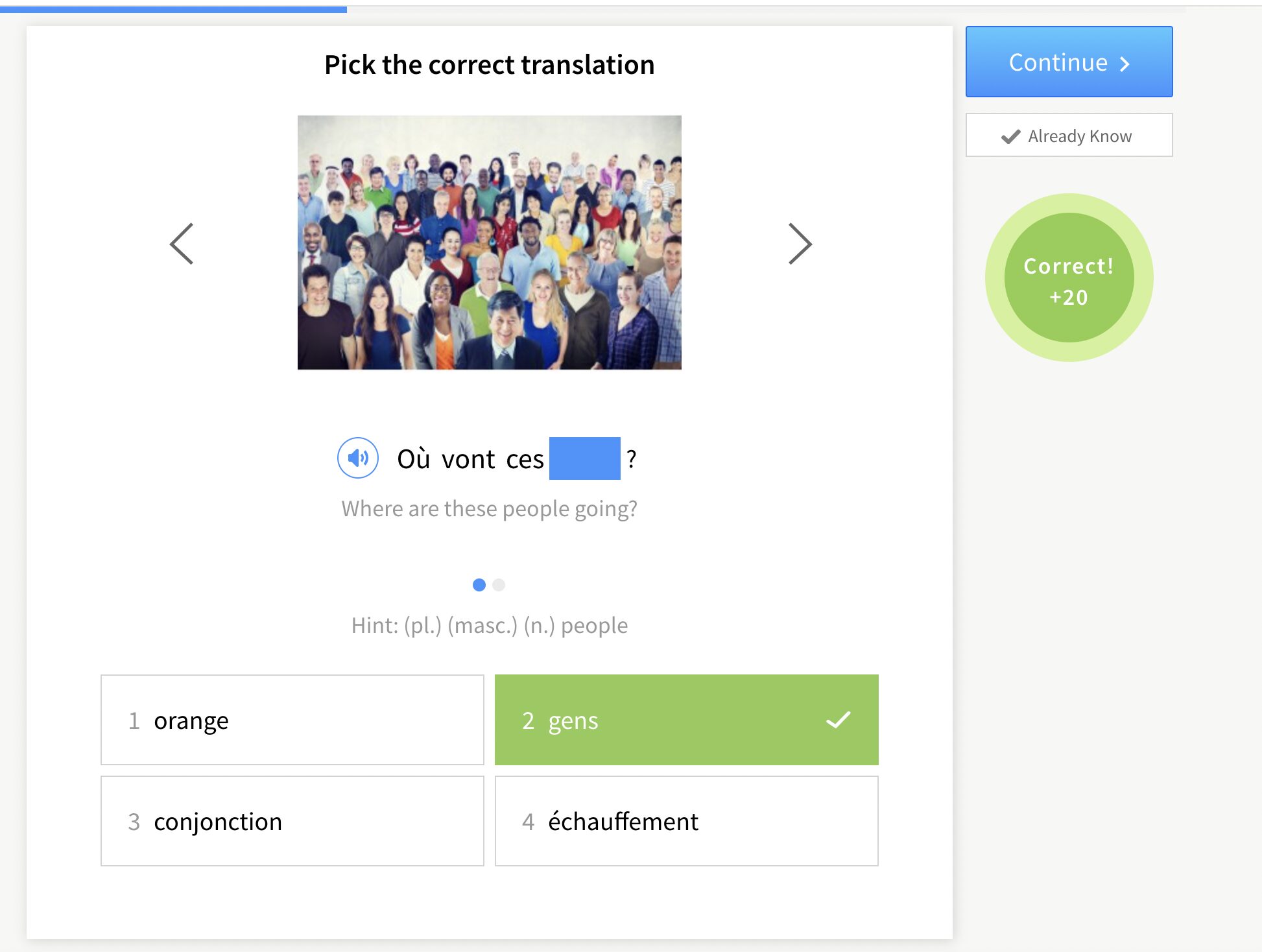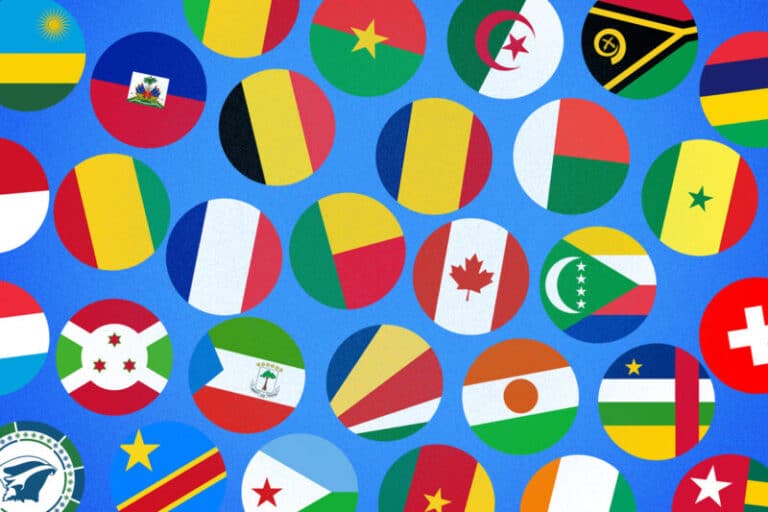5 Easy Ways to Learn Canadian French

You’ve spent months, maybe even years, learning French. You feel confident… until you hear rapid québécois (Québec French). Radio shows are incomprehensible, and you’re pretty sure that Canadian movie wasn’t even in French. Suddenly, you’re doubting everything you’ve ever learned.
But your French studies won’t forsake you—learning Canadian French will be far quicker than learning a new language altogether, and it’ll be a ton of fun.
Download: This blog post is available as a convenient and portable PDF that you can take anywhere. Click here to get a copy. (Download)
1. Listen to chansons folkloriques québécoises (Québec folk songs)
One fantastic thing Québec has going for it is its amazing folk music. It’s a great way to hear the French-Canadian accent in all its glory. I’ll never forget my first time in Québec City with my university French club. We stopped in a pub on a Tuesday night, and many of the locals had brought their violins, flutes, drums, you name it. They proceeded to jam together late into the night while everyone sang along.
The music is catchy, so you’ll start to understand the accent fast! Before you write me off as some old fogey digging up ancient relics for you kind people to listen to, hear me out. Québécois folk music is almost reminiscent of that of the Celts—think Irish and Scottish reels and bar songs. In fact, it has mixed with the Celtic music played in Anglo-Canadian circles. There’s plenty of foot-stomping, violin runs, jaw harps and dirty lyrics to boot.
Here are a couple of songs to get you started.
La Bottine Souriante — “Yoyo”
J’rentre dans un’église
Là où il n’y avait rien
Là où il n’y avait rien (bis)
J’ai aperçu plus loin
Yoyo, Yoyo
Un p’tit moine dans un coin
Et puis tiens! tiens! tiens!
(I walk into a church
Where no one was around
Where no one was around
I spotted someone far away
Yoyo, yoyo
A little monk in a corner
And then well, well, well!)
Notice how Je rentre / j’rentre (I enter/I go) and petit / p’tit (small) sound more like J’ren and tit (pronounced “tee”).
In formal French from France, it’s much more common to fully enunciate rentre and petit .
Pay special attention to nasal vowels—they sound very different from Parisian French, and the nasal vowels, I think, are really what characterize the Québec accent. Words like rien (nothing), loin (far) and coin (corner) sound very roughly like “ree-ay,” “lway” and “kway,” while still having the final vowel nasalized.
Le Vent du Nord — “Au Bord de la Fontaine”
Au bord de la fontaine
La belle ma dondaine (bis)
Au joli mois de mai
La belle ma lalala
Au joli mois de mai
La belle m’a dondé (bis)
(At the edge of the fountain
The pretty girl, my *untranslateable cutesy word used in songs*
In the lovely month of May
The pretty girl my lalala
In the lovely month of May
The pretty girl *untranslateable cutesy word used in songs*)
Here, at least in the first verse, we don’t have any nasal vowels to watch for, but pay attention to the relaxed pronunciation. The “-aine” portion of fontaine (fountain) and dondaine (cute filler word) would sound roughly like “- ehn” in Parisian French ( fontaine and dondaine ).
In this song, however, it’s pronounced much more like “-ayn.” Note that the final “e”s of fontaine and dondaine are fully pronounced, which is common in folk songs and poetry throughout the francophone world.
Again, at first you’ll question whether the singers are really saying what the lyrics claim they are. Watch for how the words seem to collapse and slur into one another (more so than in Parisian French), and how the nasal vowels, especially in and en, sound a bit twangier.
Overall, the pronunciation of québécois tends to be more relaxed than Parisian French. The difference in accent between Québec and Paris can be stark, but look up the rest of those lyrics and read along carefully—you’ll soon get the hang of the French Canadian accent. You’ll come to love it!
2. Watch great movies
French learners often fail to realize that Québec has its own strong film tradition separate from France. These movies can have (but not always) a strong Catholic bent, because Québec didn’t go through the French Revolution along with France, instead breaking away from heavily Catholic culture only recently.
Movies in general are a great way to fine-tune your understanding. The dialogue tends to be closer to how people speak in real life. But movies can also offer a great challenge because especially in independent sorts of films, the actors tend to speak quietly and mumble.
If you can understand mumbled québécois, you can understand anything!
Here are two suggestions to get you started.
“La grande séduction” (“Seducing Doctor Lewis”)
This movie is hilarious. It takes place in the tiny village of Ste-Marie-La-Mauderne, which has long been in decline. In order to lure a company to build a factory in the village, the residents need to double their population, bribe the company director and convince a doctor to take up residence in town.
The plot centers on the villagers’ attempts to get a young, sophisticated doctor from Montreal to stay in Ste-Marie-La-Mauderne. The villagers fake that they appreciate the finer things in life, like cricket and jazz, when really they’re coarse people who can’t get enough hockey.
“Monsieur Lazhar”
Here’s a darker film about an Algerian immigrant living in Montreal. He takes up a substitute position in a school after the French teacher commits suicide in a classroom. Understandably, the students are shaken, and Monsieur Lazhar has his own tragedies to deal with, but they work together to form a tight relationship.
(Note: Beware of French Canadian dubs of English-language movies and cartoons. While the voice actors don’t speak in a Parisian French sort of way, they also don’t put on their full Québec accent. Watching dubbed media can give you a false impression of how québécois actually sounds!)
FluentU takes authentic videos—like music videos, movie trailers, news and inspiring talks—and turns them into personalized language learning lessons.
You can try FluentU for free for 2 weeks. Check out the website or download the iOS app or Android app.
P.S. Click here to take advantage of our current sale! (Expires at the end of this month.)
3. Learn some French Canadian slang
If you’re planning a trip to Québec, you’ve got to use slang and swear like a real Québécois.
As mentioned above, Catholicism has been well-rooted in French Canadian culture for a very long time. While today’s culture is more secular, that kind of religious fervor still sticks around in odd ways.
In Québec, this is evident in their profanity. For one, swear words are called sacres , which comes from sacrer (to consecrate).
And here you can watch a Québécoise herself explain how to use some! Beware: these words are quite vulgar, so don’t start shouting them as soon as you land in Québec.
4. Enjoy entertaining television shows
Again, a lot of French learners don’t realize that there’s a whole world of francophone television outside of France.
Québec has some wonderful top-quality shows, so start watching! On YouTube, you can watch plenty of episodes of “Tout le monde en parle” (“Everyone’s Talking About It”), a high-energy talk show with plenty of famous francophone speakers from Céline Dion to Rómeo Dallaire.
Some episodes are more serious and other episodes are absurdly funny and include plenty of arguing, interruption and people talking over one another. Sure, it’ll be hard to understand at first, but keep at it, and it’ll all clear up!
As for TV series, I recommend “Unité 9” (“Unit 9”), a French Canadian take on women’s prison dramas. Don’t think this is just a knock-off of “Orange Is the New Black.” This show has its own involved storyline, memorable characters and far less nudity!
5. Listen to Radio-Canada
So, you’ve been diligently watching sacre-laden films and TV shows, and you got tired of the slurred speech and complicated dialogue? Relax with some news from Radio-Canada. This is Canada’s French-language radio and television network, and it’s of consistently wonderful quality.
If one thing jump-kicked my québécois into action, it would be this. The language is more formal, so while most of the hosts and contributors speak in French Canadian accents, it’s much, much easier to understand than film and television. News is repetitive, so you’ll have plenty of chances to get it right.
Furthermore, Radio-Canada isn’t just a news station—they have a variety of great programs. I personally like “Plus on est de fous, plus on lit!” (“The More Crazies There Are, The More We Read,” a pun on the proverb plus on est de fous, plus on rit , which roughly translates to “the more the merrier”), a show where the hosts interview authors on their recent releases. Although this program ended in 2022, there are over 1400 episodes available to listen to.
If you live in Canada (or have a way to hack your computer into thinking it lives in Canada), then you can also watch the Radio-Canada TV station on their website.
Now you no longer have an excuse for not understanding the rich language of Québec. If you’re learning French, always remember that there are numerous French-speaking countries, each with its own unique culture and manner of speaking.
So dive into a new culture and rejuvenate your learning!
Download: This blog post is available as a convenient and portable PDF that you can take anywhere. Click here to get a copy. (Download)
And One More Thing…
If you’re like me and prefer learning French on your own time, from the comfort of your smart device, I’ve got something you’ll love.
With FluentU’s Chrome Extension, you can turn any YouTube or Netflix video with subtitles into an interactive language lesson. That means you can learn French from real-world content, just as native speakers actually use it.
You can even import your favorite YouTube videos into your FluentU account. If you’re not sure where to start, check out our curated library of videos that are handpicked for beginners and intermediate learners, as you can see here:
FluentU brings native French videos within reach. With interactive captions, you can hover over any word to see its meaning along with an image, audio pronunciation, and grammatical information.
Click on a word to see example sentences and other videos where it's used in different contexts, then add it to your flashcards. For example, if I tap on the word "gens," this is what pops up:
Want to make sure you remember what you've learned? We’ve got you covered. Each video comes with exercises to review and reinforce key vocab. You’ll get extra practice with tricky words and be reminded when it’s time to review so nothing slips through the cracks.
The best part? FluentU tracks everything you’re learning and uses that to create a personalized experience just for you. Start using the FluentU website on your computer or tablet or, better yet, download our app from the App Store or Google Play.
Click here to take advantage of our current sale! (Expires at the end of this month.)

